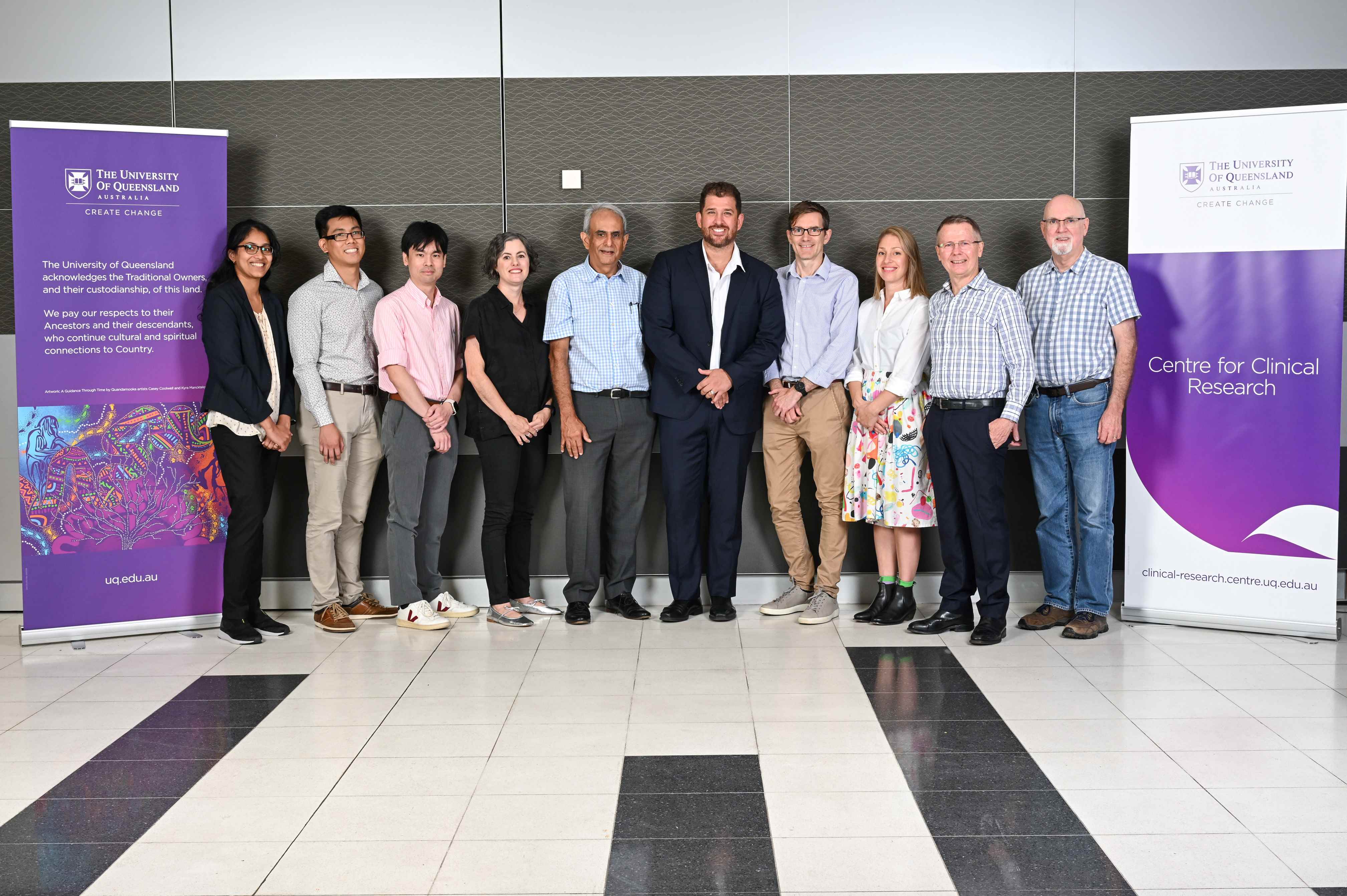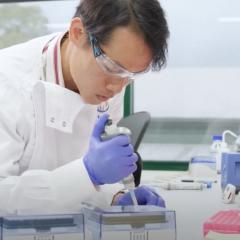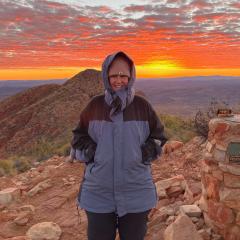Professor Carlos Salomon Gallo from UQCCR and his team have received one of three major grants from the Ovarian Cancer Research Foundation (OCRF).
The OCRF hope that the three grants – which total nearly $2.1 million – will boost Australian-led research into ovarian cancer diagnosis and treatment, with the aim to improve patient outcomes and long-term survival rates.
Professor Salomon Gallo’s team will lead a large-scale collaboration with Australian hospitals and researchers.
The study will determine how accurately and early his diagnostic test can distinguish ovarian cancer from other cancerous and benign conditions, such as endometriosis.
The project aims to collate data that can validate whether the test can progress to clinical trials.
“In a multidisciplinary and multi-institute effort across Australia and overseas, we have access to a large number of samples from patients with different types of cancers and other pro-inflammatory conditions,” Dr Salomon Gallo said.
This will enable us to establish the disease specificity of OCRF-7 and determine its accuracy in distinguishing ovarian cancer from other types of cancers.
“We are so grateful for the continuous support of the OCRF for our ovarian cancer program,” Dr Salomon Gallo said.
“Without OCRF funding the team would not be able to determine how specific the OCRF-7 test is nor collate the data required to define it’s intended use – an important step towards progressing the test towards trials.”
The OCRF’s National Research Grants Scheme is also supporting ovarian cancer research being undertaken by Professor Kristen Radford, of Mater Research and UQ and Dr Dane Cheasley, of the Peter MacCallum Cancer Centre and the University of Melbourne.
OCRF CEO Robin Penty emphasised the correlation between research and boosting survival rates.
“Ovarian cancer is the most lethal reproductive cancer, regardless of gender,” she said.
“It’s estimated we’ll see over 1,800 new cases in Australia this year, and less than half of those patients will be alive in five years’ time.
“These patients will receive very similar treatments to those my grandmother received four decades ago. We need genuine step-change, and funding innovative research is the only way to achieve that.”
Read more about the OCRF Grants scheme recipients.

Not in the Photo: CI of the grant - UQ Professor Andreas Obermair, Professor Jim Coward (UQ), Professor Andrew Barbour (UQ), Professor John Hyett (Western Sydney University), Associate Professor Martha Lappas (The University of Melbourne), Dr Melanie McCoy (The University of Western Australia Medical School).



